In my last dyeing session I printed these two fabrics. I loved them and couldn’t wait to use them together!
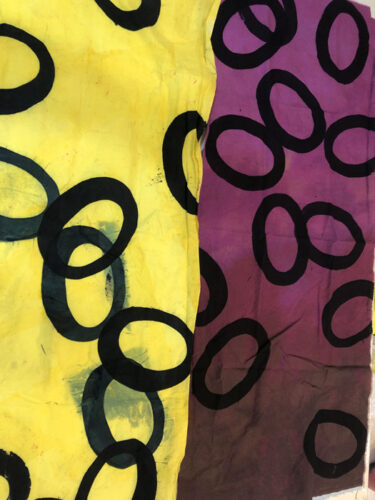
But, what to do with them? In my usual fashion I pulled out every fabric that I thought MIGHT work with them.
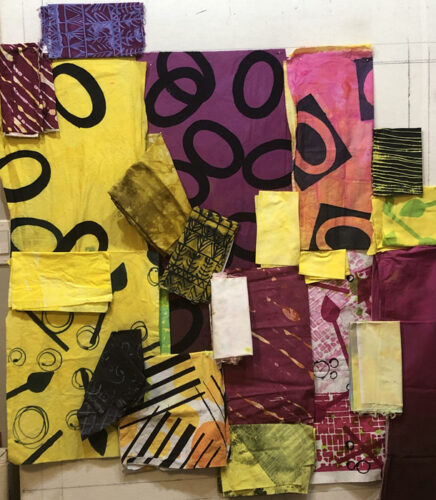
I tried adding some peach, as a transition color.
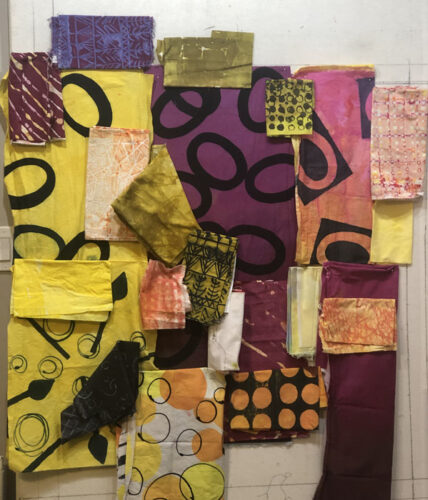
Then, I removed some of the busiest prints and added black and dark purple.
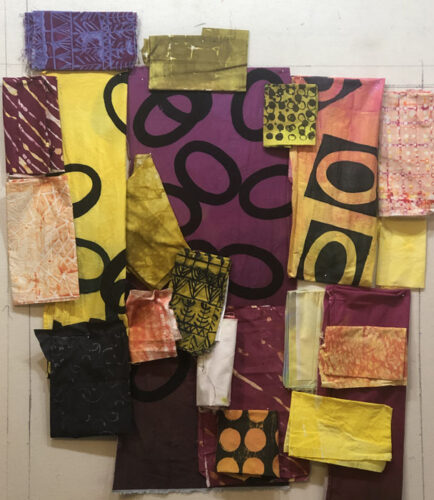
Now what? Should I use both bright and dull yellows?
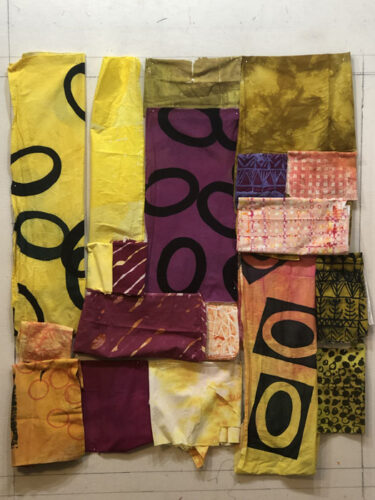
Or maybe just dull yellow? (Which would mean I couldn’t use the yellow circles at all.)
Either way, I knew I needed a plan. Maybe something wide and short with a horizontal arrangement of purple.
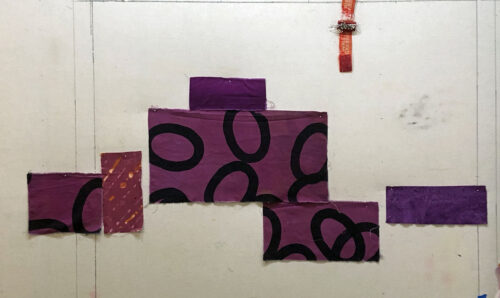
No, it really was too chunky.
I finally proceeded with the selection below, still wondering what to do.
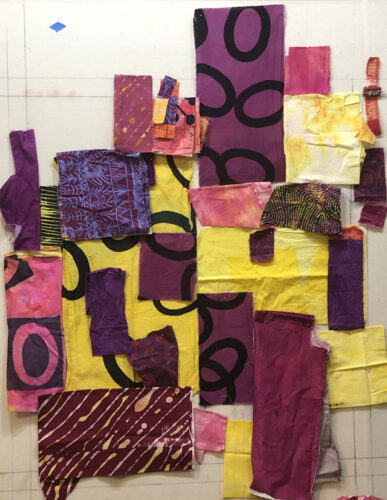
I thought I should lay out the focal point/line first. I cut up the yellow, trying not to dice up too many circles. I was pretty happy with this, but I knew I couldn’t properly audition it on a light design wall. I needed to see the purple/fuchsia around the perimeter for contrast.
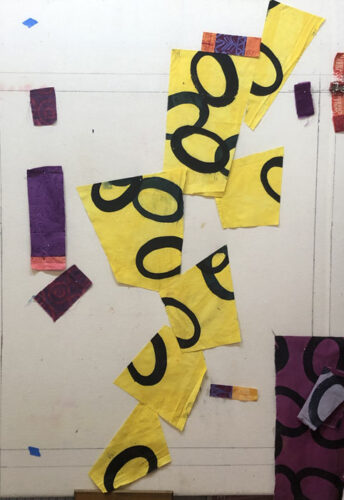
I stared in with the fuchsia and liked the added contrast. But what about those yellow pieces? I began to think that they were too big and chunky.
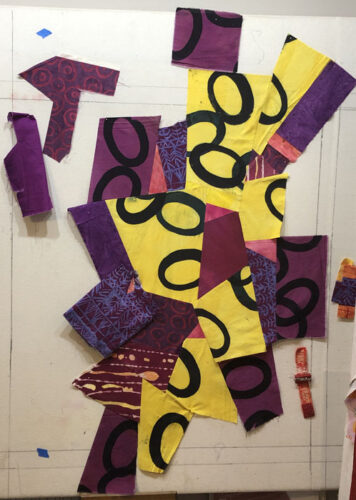
What if I made them smaller and/or inserted fuchsia in some places? To audition the idea I did a little experimenting in the computer.
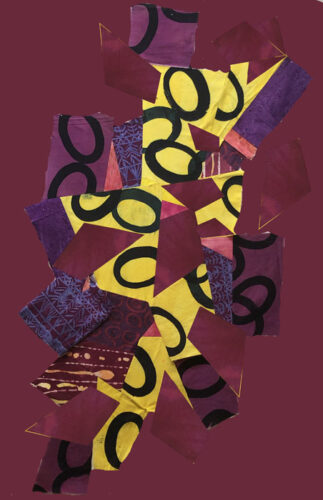
Hmm. I learned two things: 1 – Yes, the yellow looked better in smaller pieces, 2 – That’s too much fuchsia!
So, I reluctantly knew what had to be done: I needed to partially take it apart, cut some pieces smaller, and then figure out how to get everything back together again. And that’s when it turned into a giant Tetris puzzle!
Sometimes I hate it when I get a good idea! (Or was it really good? Watch for future posts so you can be the judge.)
Ellen Lindner




Ellen, it’s so helpful to see your process. It is a relief to see that playing extensively with options until happy enough to pursue a path is normal and in fact necessary. I am not alone! Now I need to follow your example of more immediate follow-up versus my timeline of procrastination!
Hey Susan. For me, the trial and error part is absolutely necessary! (And I just leave it on the design wall, in pieces, so I can’t ignore it. I typically work on it every day, but sometimes I just get a small section done.) I’m getting there!
Oh, I so know your pain! I do that all the time: Start with a fabulous idea and exciting fabrics and then they just will not play well together no matter how much I try to make them work. [sigh]
Thanks for the encouragement, Lif! I do feel like I’m making progress, but it sure has been slow!
Since my mind is not able to envision anything remotely abstract, I love it when you show steps taken to design. This is very interesting and I DO look forward to seeing what happpens.
Thanks, Mom!